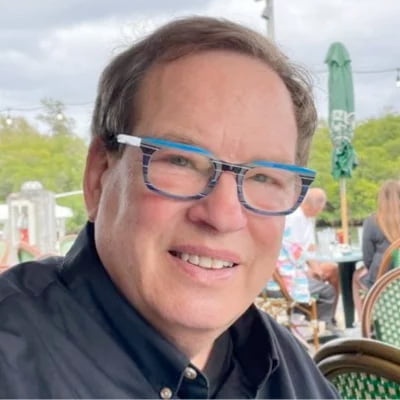The herd is thinning. This week, Cumulus and Townsquare Media threw in the towel and announced the shutdown of twenty radio stations overall.
Some of them were AM stations which probably last had listeners in 1981; a few of them were rimshot FMs, which were a business opportunity in the days when listeners didn’t have as much choice and would put up with a weak signal on the far side of town but can’t compete anymore. The filings at the FCC offer some vague hope that the stations might someday come back, maybe in the event someone comes forth and offers to buy them.
The question — as it was when Stephen King gave up on his Maine radio stations — is why someone would buy these stations, and what would they do with them? It’s one thing if you have a big signal FM and KLove or WayFM aren’t yet in the market, and another when it’s a weak AM, even with a translator. Lance Venta at Radio Insight took a few minutes off from his Spring Training tour (hey, you were just up the road from me!) to compile a list of the doomed stations, and there isn’t a lot of opportunity there.
As it turns out, one of the stations that went silent was the AM side of the combo where I got my start and met my wife. WJLK in Asbury Park. At the end, it had swapped call letters and become WOBM, which was once a big deal, and the heritage station in Monmouth County at the Jersey Shore. WJLK was where everybody turned for school closings (and lunch menus), local news, sports, and weather. It was full-service radio, replete with a market legend (Dick Lewis) and the unmistakable sound of Grandma’s living room. You could almost hear the crinkle of the plastic slipcovers on the couches and chairs.
I don’t know when, exactly, that kind of radio went from comforting and wildly popular to creaky and old, but it was already at that stage when I arrived, and after some brief success as an Oldies station, no format worked. Nobody was tuning into 1310 AM for anything, not Standards, not Sports, not a simulcast of an FM with a dodgy local signal. That game was over years ago.
While this obviously doesn’t mean that all radio stations are about to be taken off the air – and many stations are profitable as going concerns, their problems arising from debt – it’s not a good sign. Or maybe it is: taking money-losing, technically challenged signals off the air means less competition for what revenue is left in the market. (Assuming, of course, that those stations earned any revenue. I’m skeptical.) I wonder if any listeners even noticed that the stations are gone. It’s also proof that FM translators can’t save every AM station.
Maybe nothing can save some stations. Nobody wants to pay for them, many sold off their real estate and towers years ago, and I haven’t seen a new format that can pull listeners back to AM/FM radio from streamers in years. Personality radio is pretty much a goner, too expensive and taking years to develop.
You can argue about the reasons we got here, but we’re here, and maybe it was inevitable. Nobody guaranteed that the radio industry would be around forever. It’s just that I didn’t expect stations to become worthless quite as quickly as this.
Barrett Media produces daily content on the music, news, and sports media industries. To stay updated, sign up for our newsletters and get the latest information delivered straight to your inbox.

Perry Michael Simon is a weekly news media columnist for Barrett Media. He previously served as VP and Editor/News-Talk-Sports/Podcast for AllAccess.com. Prior to joining the industry trade publication, Perry spent years in radio working as a Program Director and Operations Manager for KLSX and KLYY in Los Angeles and New Jersey 101.5 in Trenton. He can be found on X (formerly Twitter) @PMSimon.




Excellent column Perry. I wrote about this back in 2021 on my blog and concluded that article with the following words:
The Benefits of Pruning
Gardeners know that pruning is the act of trimming leaves, branches and other dead matter from plants. It’s by pruning a plant that you improve its overall health.
A beautiful garden is one where the plants have been trained to grow properly, to improve in their health/quality, and even in some cases to restrict their growth. Pruning is a great preventative gardening and lawn care process that protects the environment and increases curb-appeal.
The irony of gardening is, the more fruit and flowers a plant produces, the smaller the yield becomes. Pruning encourages the production of larger fruits and blooms.
Why do I share this with you?
I believe that everything in the world is interconnected. You can’t for a moment think that what makes for a bountiful garden would not also make for a robust radio industry.
Today’s radio industry is so overgrown with signals and other air pollution, that it has impacted its health.
Doing more of the same, and expecting a different result is insane.
It’s time to get out the pruning shears.
Less Is More
I believe that the way to improve the radio industry in America, to have more advertising revenues to support quality local services including news, sports and emergency journalism, along with entertainment by talented live performers, is by reducing the number of radio signals.
AM radio is the logical first place to start.
Elsewhere in the world we are seeing that not only the AM band being sunset but the analog FM band as well. The world has gone digital.
American radio has one final chance to get it right by correcting for past decisions, hurtful to radio broadcasting, in creating a new and robust digital broadcasting service.
https://dicktaylorblog.com/2021/10/10/oh-the-insanity/